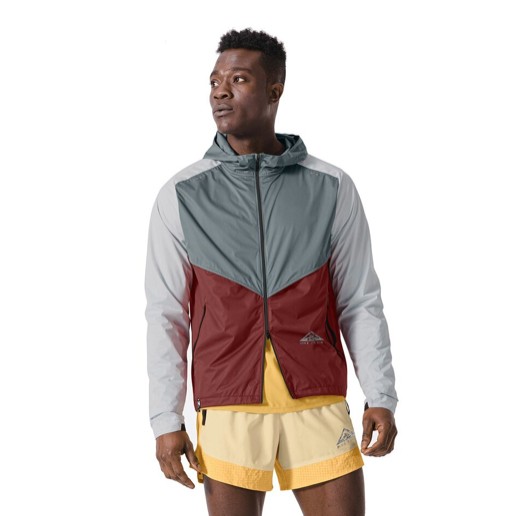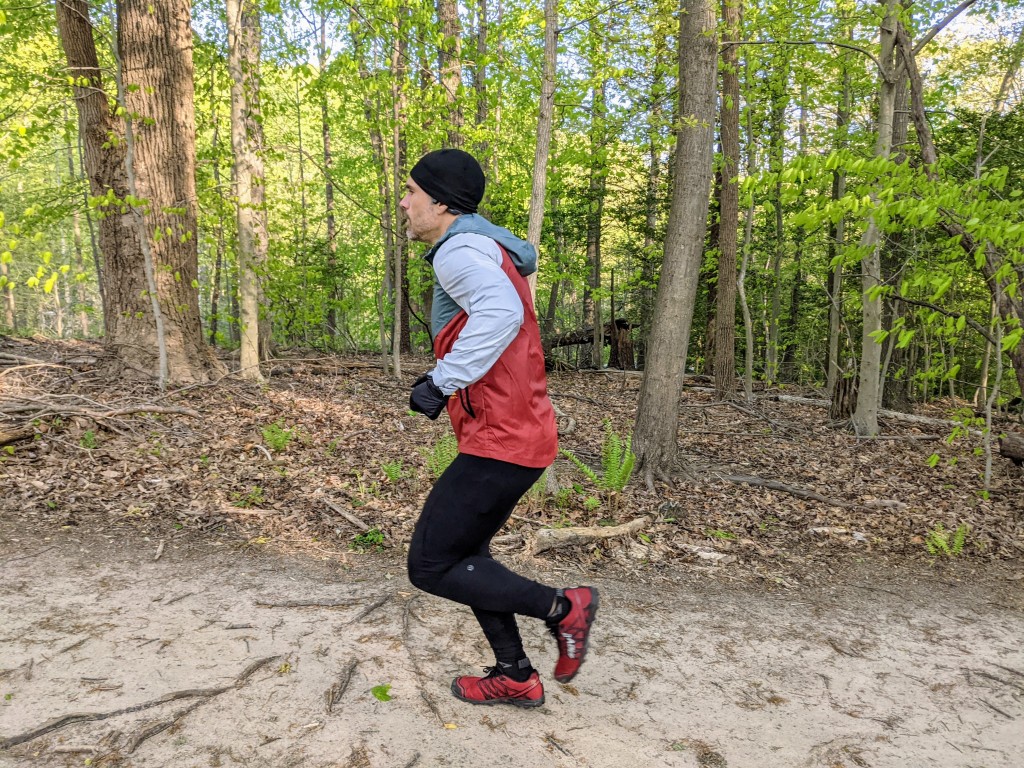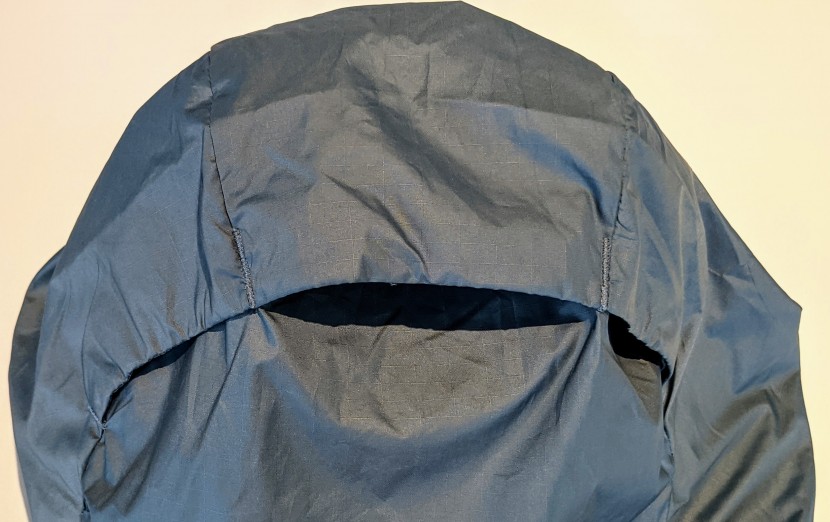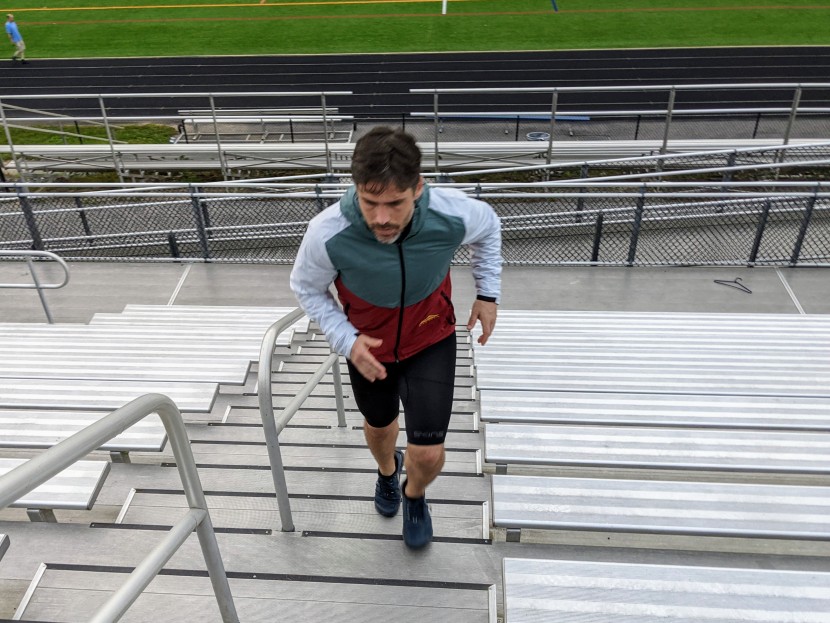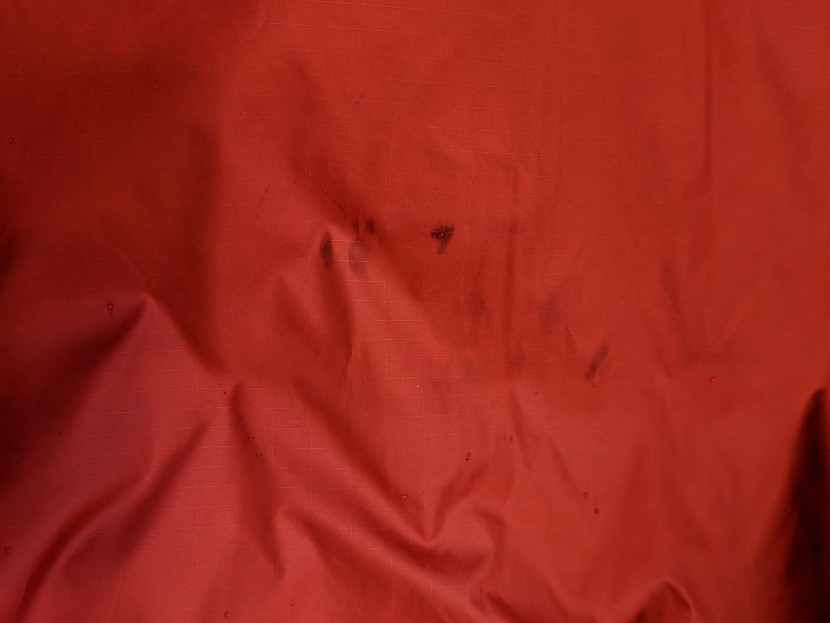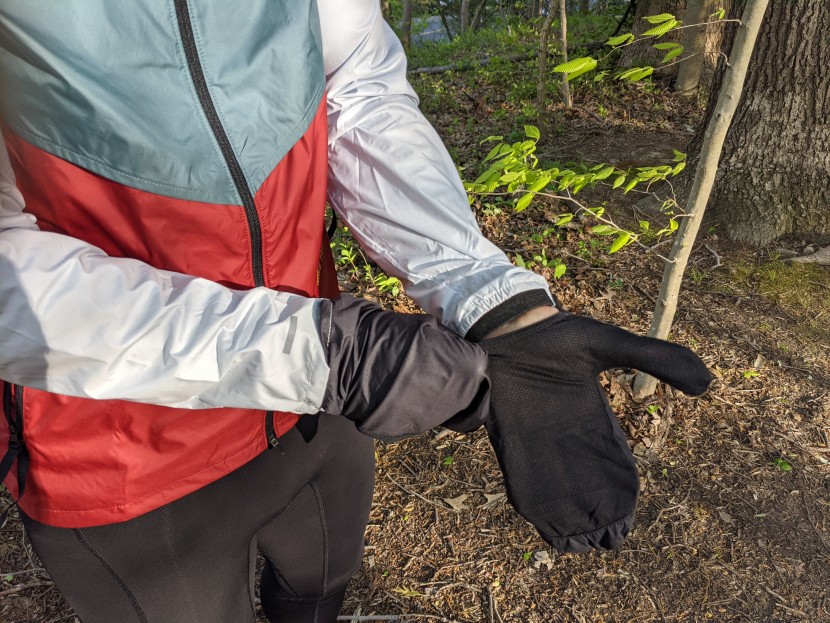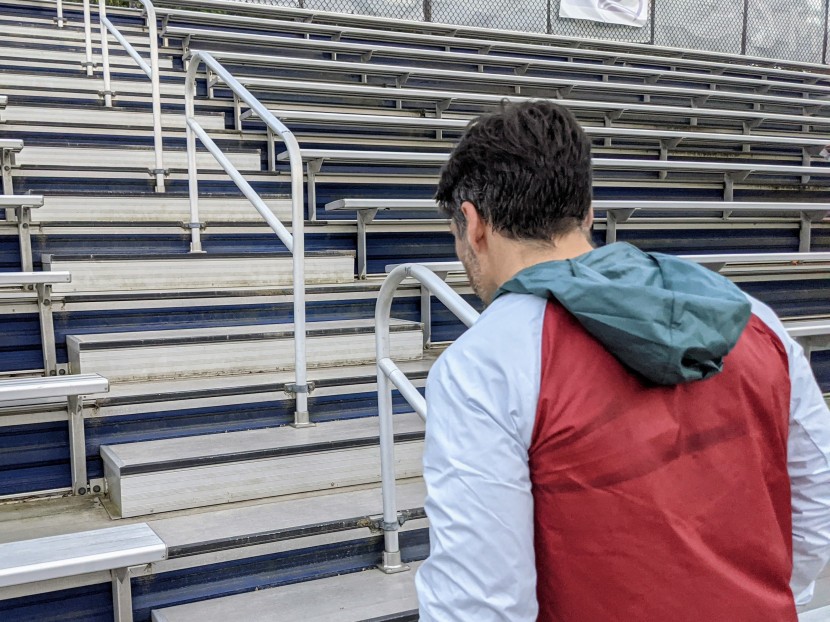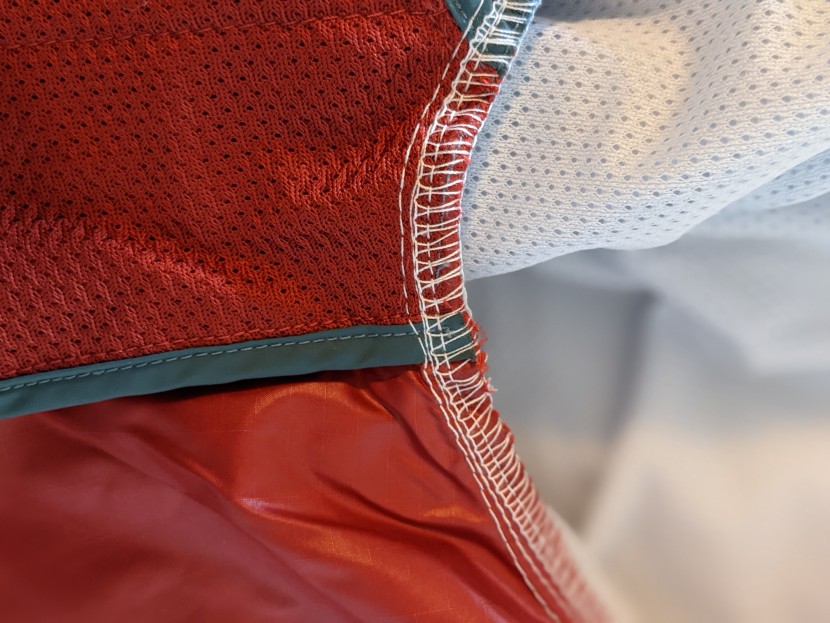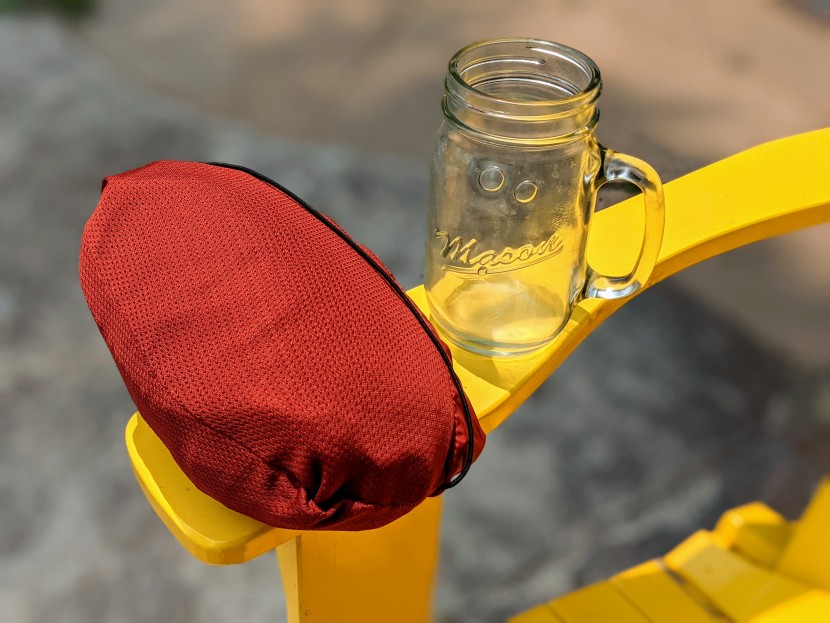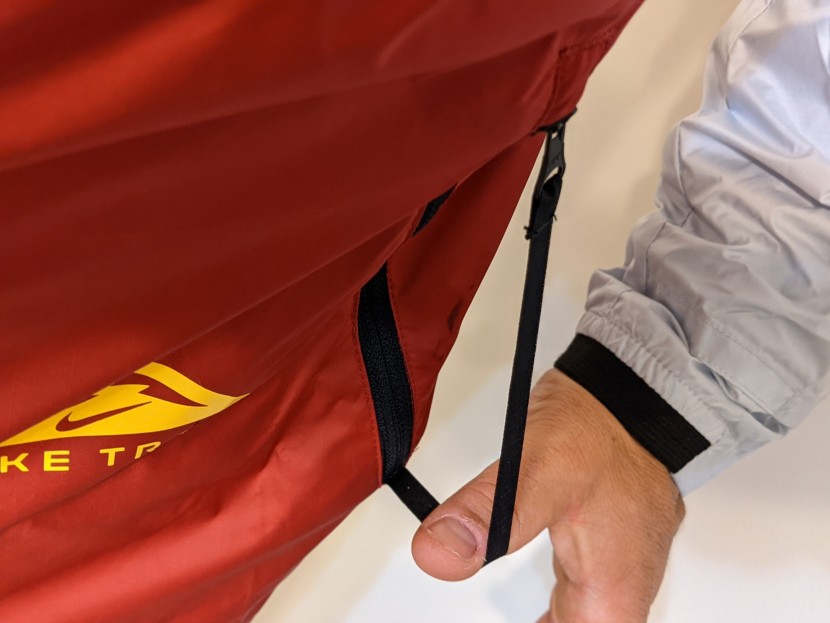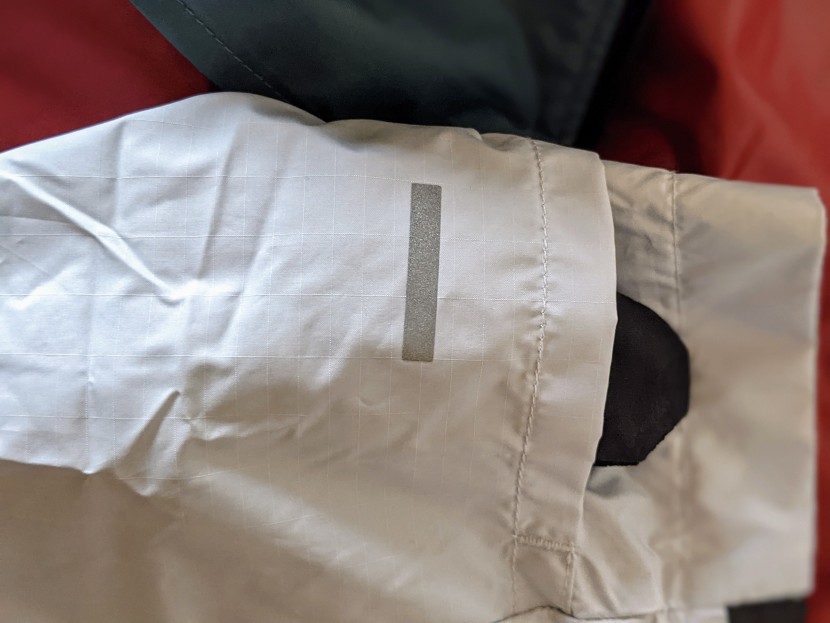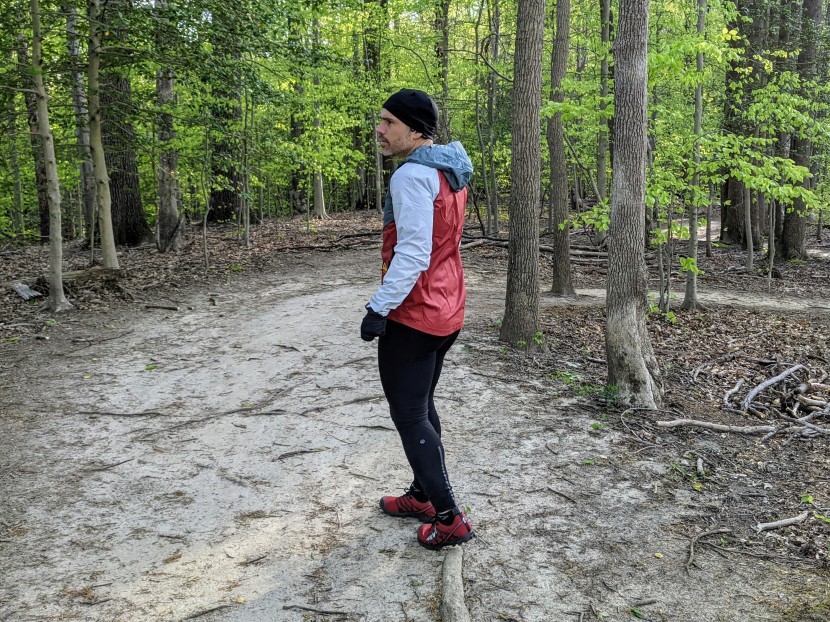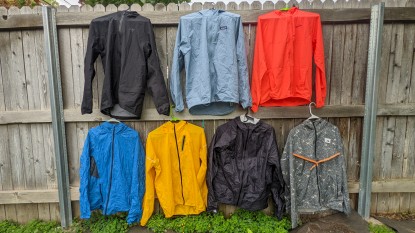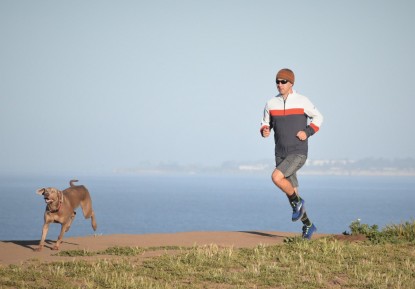Nike Trail Windrunner Review
Our Verdict
Our Analysis and Test Results
Nike's current product line seems like an even split between sports-inspired fashion and serious performance products. While these two goals aren't mutually exclusive, it can sometimes be difficult to tell which of their products fit with which goal. The Nike Windrunner Trail jacket is marketed under Nike's often-impressive Nike Trail line. Spend enough time in trail racing, and you'll find yourself very familiar with the tread pattern of the Nike shoes worn by the front-runners. However, the Windrunner jacket, despite its name and pedigree, is not well-designed for serious running performance. A series of perplexing design choices make it suitable for casual use and not much else.
Breathability
The Windrunner is remarkably thick for a running jacket. A heavy polyester shell and woven internal polyester mesh (like a 1980s windbreaker) make this the heaviest non-insulated jacket we tested. Thick jackets can still be breathable through judicious use of materials, and to its credit, the Windrunner isn't that stuffy to stand around in. Two large chest vents let in a lot of air, and the hood is also vented.
Sadly, much of that front-focused breathability doesn't carry over to the back. While the front and shoulders use woven mesh to hold the slick polyester shell away from your skin, the mesh doesn't continue across the middle of the back. Over the course of even short runs, the backpiece caused cascades of sweat and quickly soaked through.
Modern windbreaker jackets usually place wind protection on the front of the runner, where most of the wind is impacting. They can then have a back piece made out of highly breathable, air-permeable material so the runner's back can shed heat and moisture while their front remains shielded. For whatever reason, Nike did the direct opposite in this jacket, and the effect is poor performance in the breathability metric.
Weather resistance
The Windrunner has a mild DWR coating, but if water hits the jacket body and is allowed to sit for more than a few seconds, it will wet through. Strangely, tests on the hood vs. the body of the jacket (which should be made of the same material) showed the hood resisted water much better than the body.
The jacket did keep our testers warm in a variety of situations, but not necessarily more so than jackets weighing half as much. And the tradeoff in breathability by comparison to almost every other jacket we tested simply wasn't worth it.
Comfort and Mobility
Comfort is one of the largest pain points for the Windrunner. The shell of the jacket is so thick that it has almost no give. We tried the size small on two testers roughly 50 pounds apart. One is generally on the large side of small, and the other wears an extra small. Both reported that the shoulders felt tight and restrictive, especially when reaching forward.
Another problem came in with the previously-mentioned mesh liner. When even a little sweaty, the jacket liner stuck to the skin, making it difficult to take off and put on. The only way we could get it fully on and comfortable in under a minute was with another person assisting. Even then, the liner threatened to come out at the sleeves.
Portability
Portability is hit-or-miss with the Windrunner. Its weight is on par with a light winter jacket, coming in at 10.3 ounces for a size small, making it the heaviest product in our test lineup by almost two ounces. It's heavier than many running-focused insulated jackets and doesn't breathe as well as the best of those.
The jacket feels so bulky and heavy that it's easy to chuckle when seeing the phrase “PACKABLE GARMENT” printed on the outside of the packing pocket. To the Windrunner's credit, it actually fits comfortably into that packing pocket, becoming surprisingly small without much effort. Fully packing it down took about ninety seconds with no finger strain and no awkward lumpiness. When packed, it's a ball roughly 4 inches across. For all the Windrunner's shortcomings, this is one of its most pleasing successes.
Features and Visibility
For every good feature the Windrunner brings to the table, the awkward design of that feature partially negates the benefit. This was the only jacket we tested with full-sized mittens built into the sleeve. Sadly, they're difficult to stow and tend to bunch up in their little pockets, causing discomfort and difficulty putting the jacket on. This was also the only jacket our testers had ever seen with pull cords on the zippered pockets that attach at the top and bottom of the pocket, making a loop you can grab and pull to open it. Sadly, if you can grab it, so can passing leaves and branches. Trailside foliage opened our pockets on test runs on at least two occasions. This was also the only jacket in our running jacket lineup with two front zippers, allowing it to be zipped from the top or bottom. But the zippers themselves are undersized and difficult to work with while moving, usually requiring several attempts to get lined up.
Also, the only two pieces of reflectivity on the jacket are tiny: about a square centimeter on the side of each wrist. This lack of reflectivity was a worrisome trend in jackets we tested this year, and Nike was among the worst offenders.
Value
As one of the least expensive jackets we tested, the Windrunner does at least have a decent value proposition. Sadly, two of our lightest jackets were on-par price-wise while also being more comfortable and competent running jackets. Sadly, the Windrunner can't justify its existence as an effective running jacket when placed against competition from almost any price point. For runners looking for more of a casual lifestyle piece, this could be a good option.
Conclusion
The Windrunner has some great design intentions, but overall, its build quality, comfort, usability, and weather protection are all substandard compared to the other jackets in our lineup. With a few revisions, this could be a solid performer: with lowered weight, redesigned shell, and better-implemented features, it might live up to the Nike Trail name. For now, though, it's difficult to recommend this piece even to casual runners.


